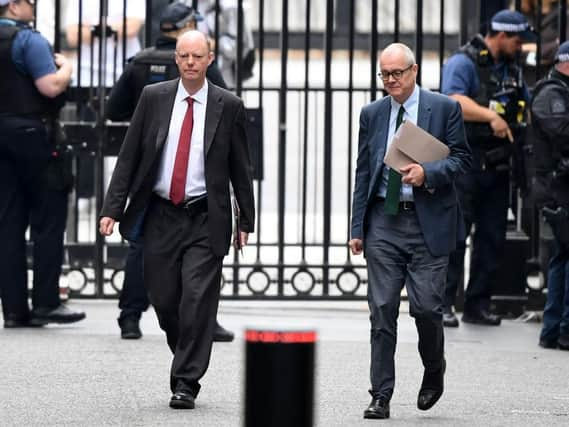England's top scientist warns of 200-plus coronavirus deaths each day by mid-November


England's top scientist fears England could soon be seeing 200 deaths a day if the spread of coronavirus is not slowed.
The Government's Chief Scientific Adviser, Sir Patrick Vallance, told a media briefing today that the number of Covid-19 cases in the country is doubling roughly every seven days.
That would mean around 50,000 cases a day by mid-October.
Advertisement
Hide AdAdvertisement
Hide AdSir Patrick said: "This is not a prediction but it shows how quickly things can move.
"It requires speed and action to bring that down.
"Increases in number of cases occurred over August and into September, across all age groups and not due to increased testing."
"We have seen an increase in cases across Europe. It started with younger people in their 20s and spread to older people. That translated into an increase in hospitalisations and, not unexpectedly, deaths are also increasing.
"Reported cases now stand at around 3,000 per day and are doubling roughly every seven days. If that continues unabated then that will lead to 50,000 new cases per day in the middle of October.
Advertisement
Hide AdAdvertisement
Hide Ad"That would be expected to lead, about a month later, to 200-plus deaths per day."
Sir Patrick added that fewer than eight per cent of people have developed antibodies to the virus — In Northamptonshire, that works out to fewer than 60,000 out of a population of nearly 750,000.
Chief Medical Officer, Professor Chris Whitty, warned additional restrictions are now likely to be put forward by the Government.
He said: "The seasons are against us. Autumn and Winter benefits respiratory viruses and will benefit coronavirus as it does normal flu.
Advertisement
Hide AdAdvertisement
Hide Ad"For the next six months, we have to take this collectively very seriously.
"There is no evidence that this is a milder virus now. For many it remains a mild infection but as you rise up the age groups then mortality rates rise, similar to what we saw previously and considerably greater than normal flu.
"If we do too little, this virus will go out of control. But if we go too far the other way we can cause damage to the economy.
"One way we can combat the virus is to break unnecessary links between households because that is the way the virus is transmitted. We have to try and do this in the least damaging way."